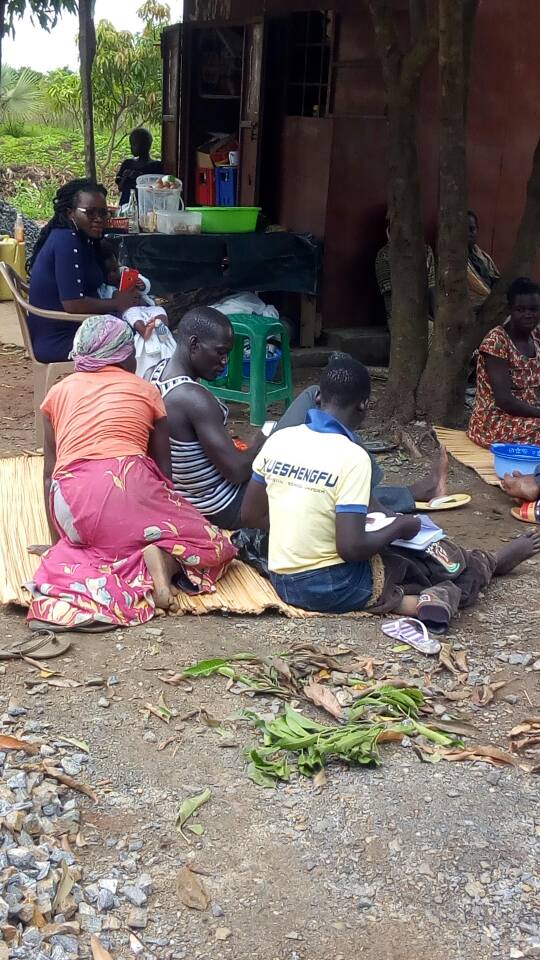We traveled to pabbo Sub County which is 40 Kms from Gulu town to do a research to find out the prevalence of and attitude towards GBV among adolescents in Northern Uganda
From the research, we found out that S/GBV is a considered a “normal” / common phenomenon. Cases of rape and incest are however considered more serious than others, and solved using traditional purification rituals rather than through legal means.
We met with a group of young men playing cards under a mango tree and asked them what they think about GBV among adolescents. One openly told me that for them when any man has violated any of their sisters, the only way to solve it is to revenge because the law doesn’t help. For example, when a girl was raped her brother revenged upon the family by raping the boy’s younger sister in return.
We also found out that women and girls in Pabbo are at a greater risk of S/GBV than men. Perpetrators attack women particularly as they have to walk far from their homes in search of firewood or water or from the fields on the outskirts of the sub county. Example, A woman from one village was sexually assaulted when in the field by a man disguised as a foreigner only to find out later that he was a member of the local community of Pabbo.
The actual extent of GBV in northern Uganda may never be accurately known, but it is clear from the research that GBV is part of the daily life and interactions in the region. From the discussions I have had suggest that everyday at least one neighbor, family friend, or even a family member, is known to survive such violence daily. Every day in Gulu district, at least one case of GBV is reported at the police station. This suggests that GBV is a common occurrence in this area, placing vulnerable groups (younger women and girls) at great risk.
The research revealed that 6 out of 10 women are physically and sexually assaulted, threatened and humiliated by men in whom they enjoy the greatest trust and most men do this under the influence of alcohol.
An interviewee her in early 20s couldn’t hide her feelings and lamented, ‘Cwara goya nino ducu, tek ka en omato kongo’, meaning that ‘my husband beats me daily when he is drunk’. Other women also expressed similar views.
According to an elderly woman that I spoke to said women and girls are sexually abused because they don’t have enough security and protection. For instance, most of the women and girls move far distances to work in their fields as well as collecting firewood and at times come back late. The women are at risk of rape and other sexual abuses from bandits who demand for sex. Another young woman supported by saying ‘instead of beating me to death its better to give in, after all its part of normal life’. Such expressions indicate that rape is common in the region, almost expected.
We then moved to Awach sub-county the next day, which is 21kms from Gulu town. We went to carry out research on how to change attitudes towards Gender Based Violence. Most of the responses were to change the attitudes of the perpetrators who in this case are Men.
They suggested the need to sensitize the community to respect and value women. The Lc1 of Awach sub county narrated to us a story that depressed me. He said one man insisted on having sex two days after birth wife his wife and woman decided to take refuge with her in-laws. When a reconciliation meeting was convened, an elder said, “Girl, the bride price has been delivered just recently, let our son eat food’. Such a statement alone denotes a bad negative attitude towards women and that is what we need to work on by sensitizing the community and empowering rural women to demand for their rights.
Then there is need to involve men in the fight to ending gender-based violence. Engaging men and boys in a systematic empowerment process helps mobilize them to understand and support concepts of positive masculinity and gender equality.
Most Women want their men to change their behavior and involve them in Joint decision making in the on key issues like health, education, assets, livelihoods, etc, this way, peace will prevail in their homes.

